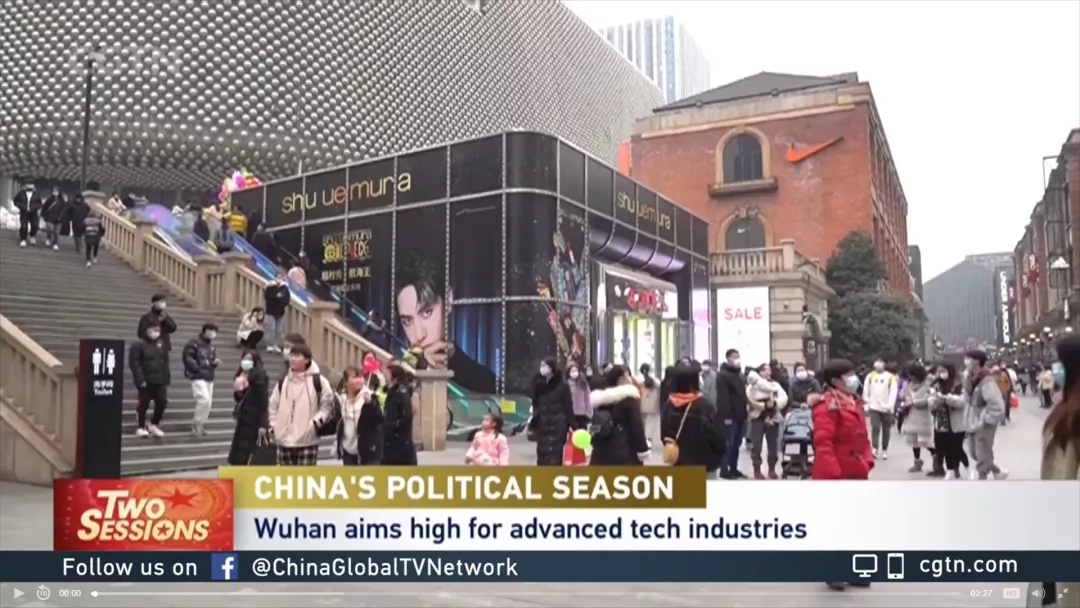湖北省政府着力加速推进支柱产业的发展,主要集中于高新技术领域的经济发展。

“我们为目标产业的发展输送高层次人才,同时做好技术储备”,武汉光电国家研究中心党委书记夏松说到。
3月9日,中国国际电视台新闻频道(CGTN)播出了对研究中心党委书记夏松的采访,以下是摘录的采访内容和播出全文:

The Chinese city hardest-hit by COVID-19 in the early months of last year, Wuhan, central China's Hubei Province, has roared back to life.
It has since been among the country's 10 economically best-performing cities. Now, it is eyeing something even bigger, and the first step is to expand its technological advances.
High-tech sectors contributed to more than a quarter of Wuhan's economic growth in 2020. On the other hand, the Hubei provincial government just rolled out key national laboratories for optical, space and biological technology.
They are set to boost its pillar industries, which are mainly high-tech economies.
"We're preparing talents and reserved technology for targeted industries," said Xia Song, chairman of Research Center Committee of Wuhan National Laboratory for Optoelectronics. The lab is located in Wuhan's high-tech zone, better known as the Optics Valley of China.
Over the decades, talents and innovative businesses have gathered at the country's hub for optoelectronic information and biotech industries. Two world-class industrial clusters worth trillions of yuan are under construction.
That has inspired Wuhan's largest industrial player to set its sights on building a new high-tech valley.
At the new development stage, looking at the whole industry chain but not focusing on its own sector is crucial, according to the Wuhan-based automaker Dongfeng, one of the country's top three motor manufacturing bases.
"We have to rethink the life cycle of R&D, manufacturing, consumption and service," said Tang Teng from Dongfeng's strategic planning department. "Given the local government's plan to create an auto valley in China, we will step up efforts to master core technologies to make this our edge in market competency."
Aside from alternative energy vehicles, the automakers have recently begun testing driverless taxis, and they plan to provide commercial vehicles in the coming years.
Given the large-scale manufacturing achievement, Wuhan is ambitious to build a high-tech automobile valley.
"Electronic information and alternative energy enterprises related to vehicle networking have already clustered in the auto valley," according to Gu Xiaoyan, a researcher at Wuhan Academy of Social Sciences.
"Now, it seeks more talents from home and abroad and further improvements in key parts of the industrial chain," Gu said.
To keep up with the growth momentum in the years to come, it is widely believed the Wuhan government will invest in mushrooming emerging industries that feature information and biological technologies, as well as some industries of the future. And Wuhan's valleys are incubating all of this new and exciting potential.
中国国际电视台(英文简称CGTN,中文别称中国环球电视网)是中央广播电视总台下属的新闻国际传播机构。中国国际电视台开播,是实现习近平总书记“两个引导”指示的重要举措,是一场“由外语频道集群向国际电视台”、“由传统电视台向电视网”融媒体发展的转型与探索。